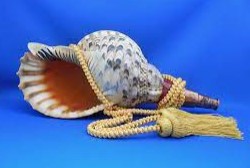Useful Japanese word (2): ほら “Hora”

This is an exclamatory expression which is used on many different occasions. In English, it can be translated, “Look!”, “Listen!”, “See?”, or just before saying something like “Here it is.” All these phrases are to catch someone’s attention. So it is used when someone you are talking to isn't paying attention to you. For example, “ほら、富士山が見える Hora, Fujisan ga mieru” is “Look! We can see Mt. Fuji.” “ほら、バスが来た Hora, basu ga kita” is “Here comes our bus.” Or “ほら、いったでしょ Hora itta desho” means “See? I told you so.” In this instance, you can add "ne" by saying "ほらね harane". When you are about to give something, say a bowl of rice, you can say “ほら Hora” like, “Here you are.” However, it is very colloquial, so it is better that you do not use it with your boss, but use it among your friends.
If you repeat the phrase "ほらほら Hora Hora", it can mean a little different.
「ほらほら、ぼやっとしてたらみんなに置いていかれちゃうよ Horahora, boyattoshiteitara Minnani Oiteikarechauyo.」
(Hey, if you keep staring off into space, everyone's going to leave you behind.)
In this case, horahora is emphasis of hora, so if you want to say the phrase strongly, you can repeat it.
「ほら、がんばれ、がんばれ! hora ganbare ganbare! 」
Hora is often used with "ganbare" which means "Stick to it!, Hang in there! or Come on!". Ganbare is a phrase to cheer somebody up. So "hora ganbare ganbare" is a phrase to cheer up somebody who is doing a sport competition, or studying for the exam, etc.
Different meaning of "hora"
Lastly, I want you to remember, "hora" has a completely different meaning. In this case, "hora" means "lie". To give you an example, "Kare wa itsumo hora bakari fuiteiru. かれはいつもほらばかりふいている (He's telling a lot of lies always.)".

A hora 法螺 ほら is a conch shell (法螺貝 horagai) that can be blown like a trumpet to make a sound. Note that the meaning of "hora" is different from that of "hora" above, but the pronunciation is the same.


